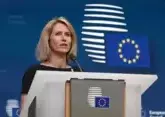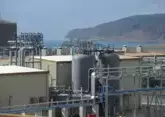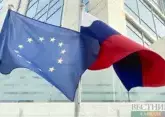On 15 May, the German regulator rejected an application from the gas import pipeline Nord Stream 2 for a derogation from new EU rules. Kim Talus looks at the ongoing judicial proceedings and the consequences of the decision in the article Nord Stream 2: New decisions and clear consequences for EurActiv. Kim Talus holds the James McCulloch Chair in Energy Law at Tulane law school. He is a professor of European energy law at UEF Law School and a professor of energy law at the University of Helsinki. He provided legal advice to Nord Stream 2 in the area of EU energy law.
On 15 May, the German regulator rejected the application from the gas import pipeline Nord Stream 2 for a derogation from new EU rules. Construction was ongoing when the new rules entered into force in May 2019, therefore the regulator did not regard the pipeline as “completed” which is a key requirement for a derogation.
Financed by energy majors from Russia and EU countries, the company had committed several billion euros before the EU changed its rules. Legal scholars have been critical because the new legislation targets one specific project, Nord Stream 2, and the criterion of “completion” can be read in this light.
From this perspective, the German decision follows closely the logic of the EU rules.
The new Gas Directive extends EU rules to import pipelines, but not beyond 12 nautical miles of territorial sea, because a further extension into the Exclusive Economic Zone would clash with the UN Law of the Sea Convention. This was explicitly noted by the European Council Legal Service during the legislative process.
Therefore, the separation of the two maritime zones and the actions pipelines must take to comply with the new rules are a direct consequence of the new EU Directive and international law, not circumvention of applicable rules as some commentators have claimed.
The territorial scope of the new rules was also confirmed by the General Court in its recent Order of 20 May.
The General Court found the action for annulment of the new Gas Directive was inadmissible for procedural reasons as Nord Stream 2 was not “directly and individually concerned” by the amending Directive; in this respect the decision sticks to the very strict case law for standing.
The Order can of course be appealed to the European Court of Justice and if this happens, it will have an opportunity to review the case one more time.
As regards the area where the new rules have to be applied, in its Order, the Court also specified that it is the part of the pipeline located between a member state and a third state up to the territorial sea of that member state that is subject to the obligations laid down by new Gas Market Directive and the provisions of national legislation transposing that directive as amended.
This means that if the German decision refusing to consider Nord Stream 2 as “completed” is not successfully appealed, Nord Stream 2 will have to make arrangements for the section of the pipeline located in the German territorial sea. It will have to comply with the requirements of EU Gas Market Directive including unbundling, third party access, transparency, among others.
Whether all this makes any practical sense is a relevant question, but this is what the EU legislator decided in April 2019 and, subject to the outcome of national, EU and international litigation, it will be up to the German regulator to ensure the compliance with these rules at some point.
The national decisions providing for derogations for offshore import pipelines had to be taken by 24 May 2020. As of today, several coastal Member States have not yet adopted the national implementation of the new rules.
It will be interesting to see how member states can comply with the deadline of 24 May, when many of them do not have the legislation to provide the derogation.
Without a derogation, many member states and their gas companies will face complicated political and practical problems connected with the new rules. It will also be equally interesting to see whether Nord Stream 2 remains the only pipeline subject to the new rules of the game.
In the meantime, the Permanent Court of Arbitration has published a number of documents that show that the company’s arbitration proceedings against the EU for an alleged breach of the Energy Charter Treaty are underway.










